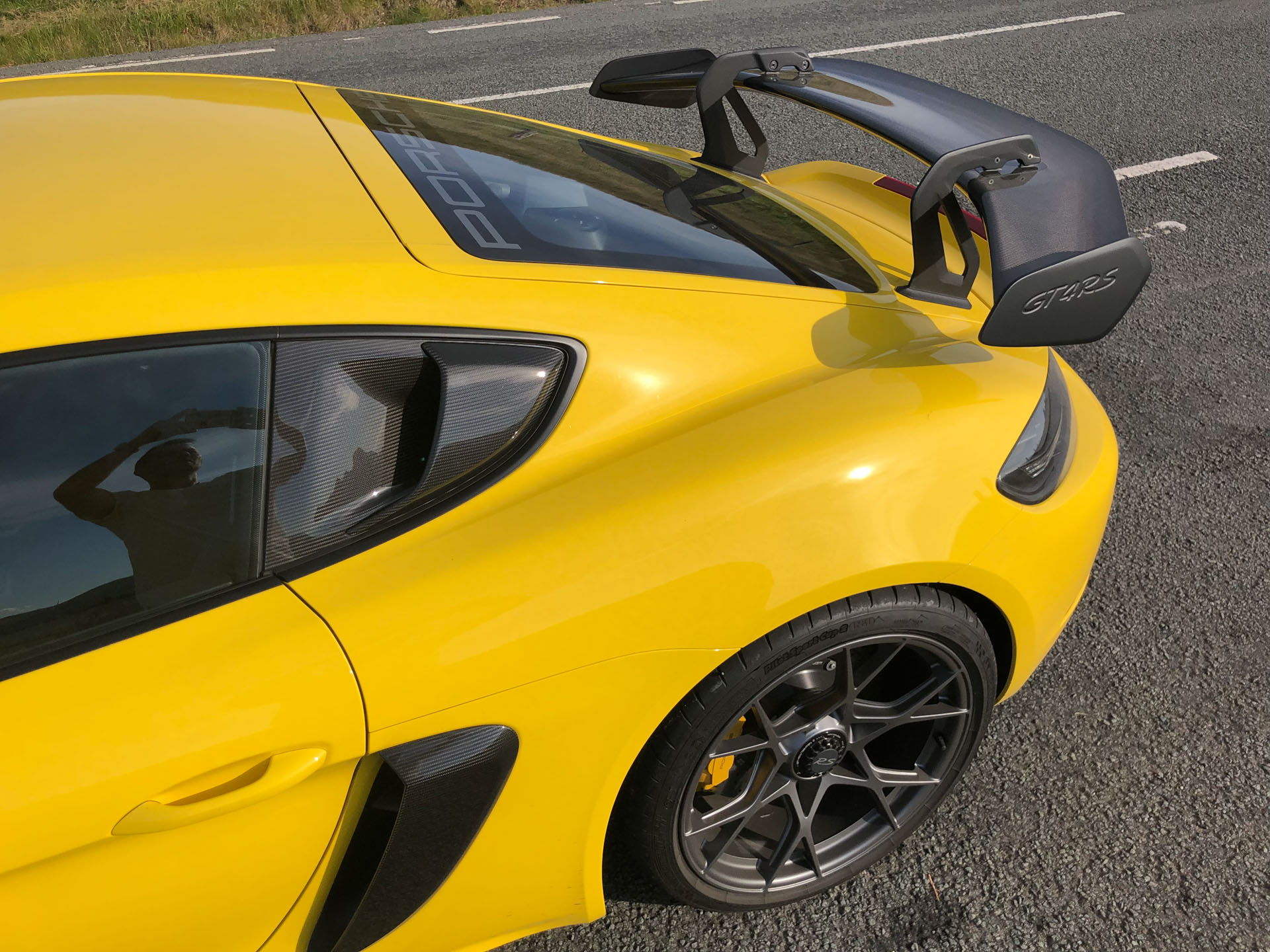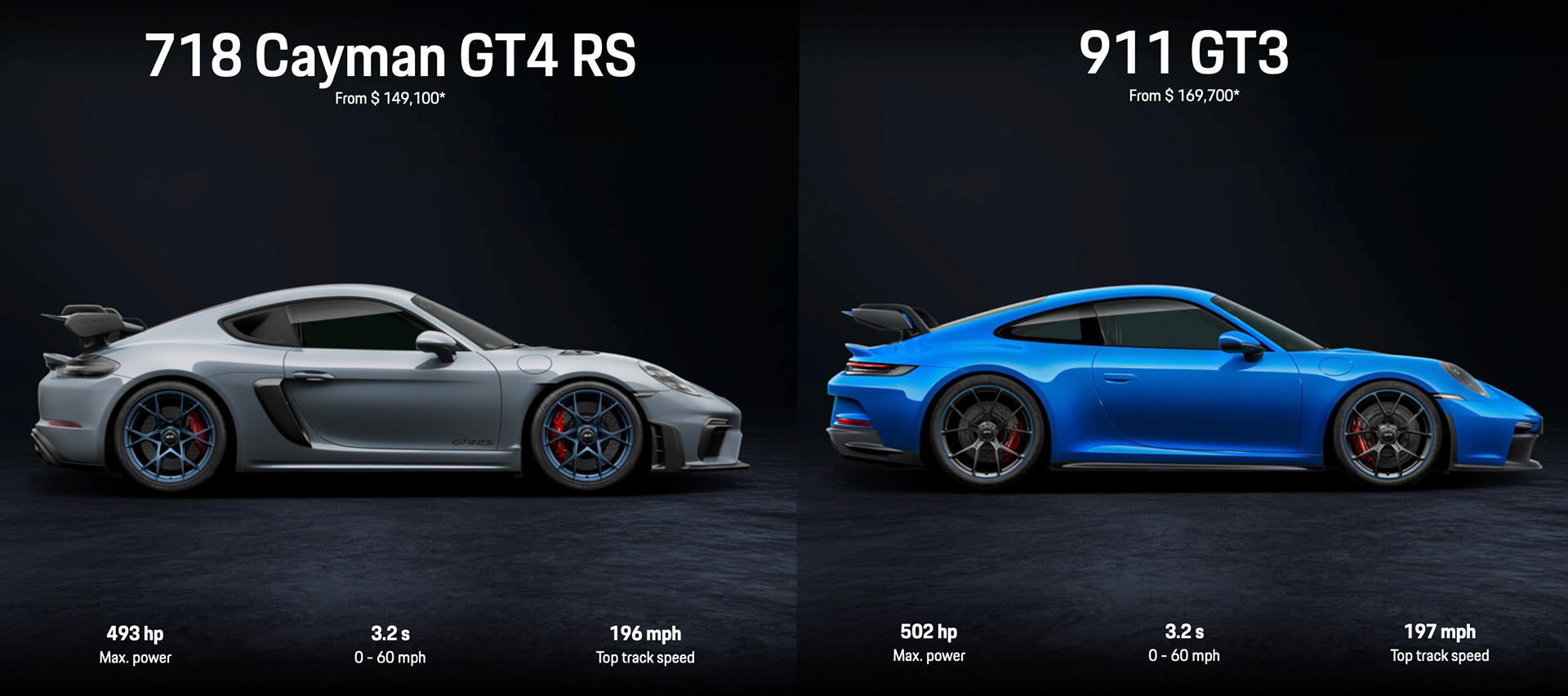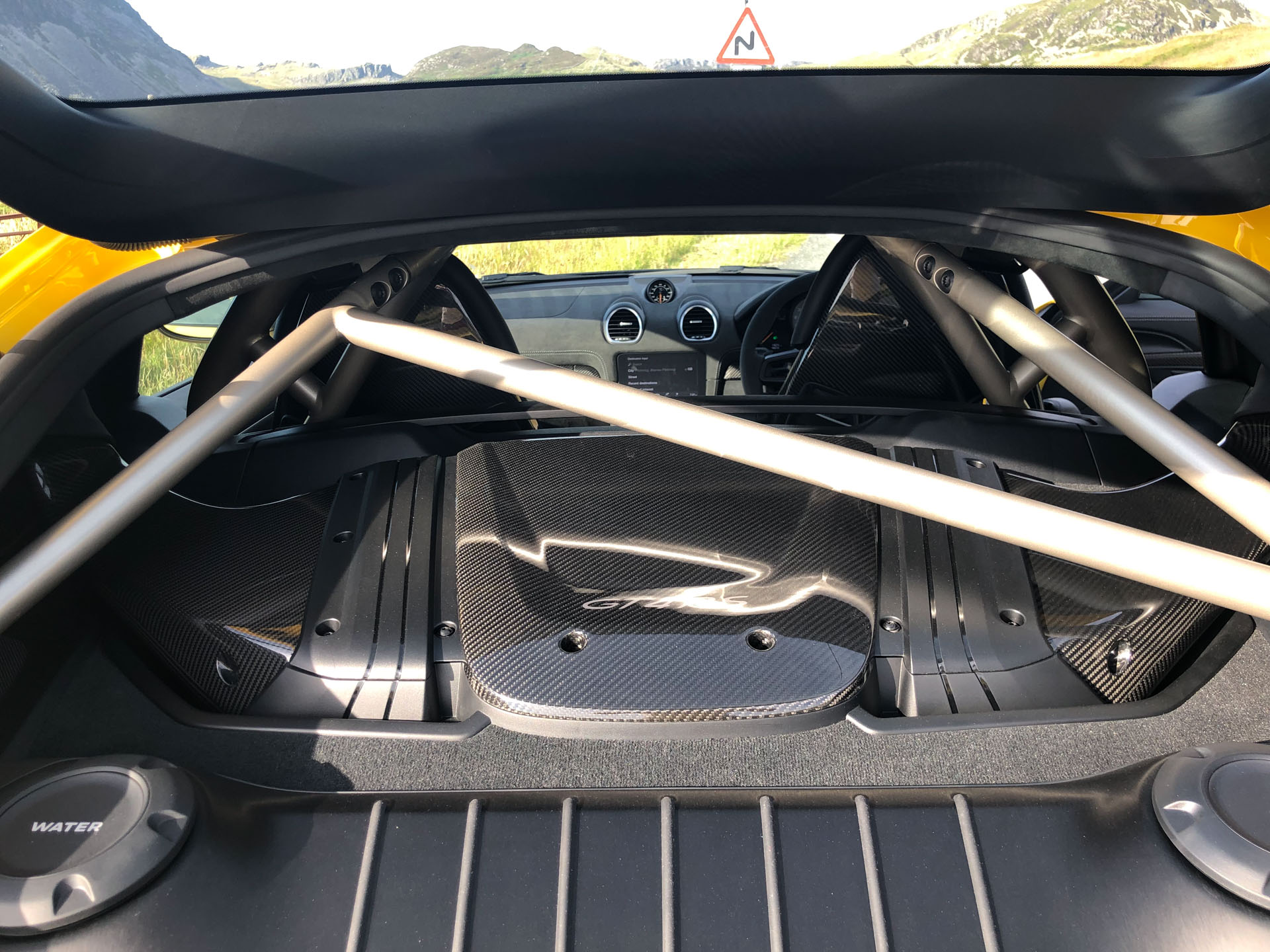- Quick Look at the 2020 Volkswagen Atlas Cross Sport | MotorTrend - March 13, 2024
- BMW Design – 2009 BMW Z4 – 2009 Detroit Auto Show - March 11, 2024
- Top 10 Car Features Women Love - October 7, 2023
In late 2021 Porsche announced it had finally done the physical engine swap we’d all been wrenching on mentally for what seemed like forever. It dropped a genuine 911 GT3 engine into a Cayman to create the 718 GT4 RS, the fastest, most powerful production Cayman ever built, and also the most expensive by some margin.
The Cayman GT4 RS costs $149,100 / £113,700 and there are a couple of ways of handling that bit if info. You might look at it and think that it appears great value for an RS Porsche, given that the new 911 GT3 RS costs a hefty $223,800 / £178,500. But you might also think it seems expensive in comparison with the regular Cayman GT4 ($106,500 / £81,700). And you might have also figured out that for not much more than a stock GT4 RS, or for the same money as one plus some of the fancy options many owners will add, you could have a 911 GT3 ($169,700 / £135,700).
The base 911 GT3 might not have those legendary RS letters after its name, but it’s a 911 and a GT3, and that means it carries huge kudos. It also has a manual transmission option denied GT4 RS buyers because Porsche couldn’t make the 911’s box fit in the Cayman’s shell, and the regular GT4’s manual had the wrong ratios and couldn’t hack the crazy 9,000 rpm redline.
Why does it cost 40 percent more than a GT4?
Yeah, what about the regular GT4? It’s a great car in its own right, costs a massive $42,600 less than the RS and can be ordered with a manual box. But it doesn’t have the RS’s trick suspension components, its super-short gearing and it doesn’t come with the GT3 motor, it’s 4.0-liter six being derived from the regular 911’s engine and delivering 79 fewer horses and running out of revs at 8,000 rpm. I know, 8k. It’s practically a diesel. Most of all though, it doesn’t have the noise. Not even the 911 GT3 makes a noise like the Cayman GT4 RS.
Related: Chevy Truck Crossing Double Yellows Takes Out YouTuber’s Porsche 911 GT3
Not even hypercars sound this silly
Loud exhausts are exciting, but when I think of some of the best cars noises I’ve experienced form the driver’s seat over the years, it’s been the ones with the great induction sound that have stayed with me: the E46 BMW M3 CSL and its carbon airbox, the McLaren F1; yeah, even the ratty 1380cc Mini I had a as a kid with a big Weber 45 carb poking through the dashboard into passenger space.
And now the 718 Cayman GT4 RS. The regular GT4 sounds pretty fruity, but for the RS Porsche didn’t only drop in the GT3’s engine but opted to draw air for the flat-six through the area that is normally occupied by rear-quarter windows, and down into an airbox located inside the cabin right behind your head. No kidding, the first time you crack the throttle open on a GT4 RS, you’ll swear the car is broken. I mean, it can’t really be this loud, this raw, can it? Sure, you might come across a crazy car modified by the aftermarket with a custom inlet that sounds brutal, but we’re talking here about a massive, sensible OEM that sells 300,000 cars a year and has just hit the stock market. It’s mind blowing that something that sounds as wild as the GT4 RS got signed off. And I absolutely want to kiss whoever put pen to paper to make it happen.

Fortunately for your sanity, and your eardrums, the RS actually cruises relatively quietly, but put some load into the engine and it moves from a growl to a scream that’s soon mixed in with howls of laughter from the grinning fool behind the wheel. The sound changes in tone and volume depending where you are in the rev range, and because this engine picks up and discards revs like the flywheel is made out of polystyrene, the soundscape is constantly shifting.
No manual, but PDK is a perfect fit
Equally snappy are the changes from the mandatory PDK paddle-shift transmission, both up and down through the ratios. Sure, it would have been nice to have a manual option, but the PDK is such a great gearbox and suits the GT4 RS motor so well, it’s hard not to have fun, especially since you get a proper lever to rock back and forward to swap gears as an alternative to the paddles.
The RS’s chassis misses out on some key hardware that you’ll find in a GT3, including the e-diff, double wishbone front-end and rear-axle steering. The rear-engined car has noticeably better traction and I’m not convinced that the GT4 RS’s steering is as communicative as the GT3’s, though it’s great by most any other yardstick, and maybe that’s partly down to the wishbones. But the other equipment isn’t missed. The rear-engined 911 uses tricks like the e-diff and rear-steering to help it turn into corners, but the 718 doesn’t need any help because its engine is in the middle so it already loves to change direction and has an exquisite balance. It’s also noticeably smaller than the 911 (4.6-in / 115 mm shorter; 1.2-in / 30 mm narrower), and that inspires real confidence when firing down narrower roads.
Related: The 2022 Porsche 718 Cayman GT4 RS Clubsport Is A $229k Toy Reserved For The Track
GT3 engine means GT3-matching acceleration
In terms of performance, there’s almost nothing in it. The 911 GT3 makes 502 hp (510 PS) to the GT4 RS’s 493 hp (500 PS), which Porsche says is down to the Cayman’s mid-engined layout requiring a more convoluted exhaust path, rather than an attempt to peg the little guy back. But comparing the PDK versions of each, the 3,120 lbs (1,415 kg) GT4 RS’s 44 lbs (20 kg) weight advantage cancels out the power deficit. Both hit 60 mph (97 km/h) in 3.2 seconds and the 197 mph (317 km/h) 911 holds a minuscule 1 mph (0.6 km/h) advantage at the top end.
Which looks better? We’ll leave that up to you but it’s worth highlighting that your mythical no-options $149k GT4 RS doesn’t look anything like the one in these pictures. The UK press car I drove was equipped with the $13,250 / £11,186 Weissach package that replaces the stock hood, rear-quarter air intake surrounds, lower rear-quarter air intake surrounds and rear wing with carbon versions of the same.
The Weissach option also adds a titanium roll cage, six-point harnesses, a carbon airbox behind your head and various “Weissach Package” logos, plus it unlocks the availability of a set of 20-inch magnesium wheels that save you 22 lbs (10 kg) of unsprung mass, but will cost you an additional $15,640 / £10,521.
I’d happily live without all of that stuff. Yeah, I’m sure the fancy wheels probably contribute a little to the 23.6-second advantage the RS (7:04.511) has over the plain GT4 at the Nurburgring (the 911 GT3 is 9 seconds faster again). But I bet the non-Weissach GT4 RS drives very nearly as well on the road, sounds exactly the same, and potentially looks better if you’re the kind of person who finds all that exposed carbon a little too vulgar, or simply not stealthy enough. Check out the grabs of the white car from Porsche’s online configurator (above) to see what a stock RS looks like. Still pretty cool, right?
So, 911 GT3 or GT4 RS? Some people still get a bit snooty about Porsche’ mid-engined cars, automatically assuming that the 911 must be better. Walter Röhrl isn’t one. He once told me that presented with a twisty road and keys to a Cayman and 911 he’d take the Cayman “every time.” On this occasion, I’m with Walter. I’ve loved driving both the current 911 GT3 and Cayman GT4 RS and loved both, but the compact dimensions, mid-engined balance and sense of cheeky playfulness, the classic analogue dials and above all that induction noise seals the win for the Cayman for me.
Fifty years in the future when your grandkids ask you why on earth we still drove dirty combustion cars in the 2020s when sporty EVs were already on the scene, this is exactly the kind of car you’d wheel out and light up to make them understand. Their ears won’t know what’s hit them.





